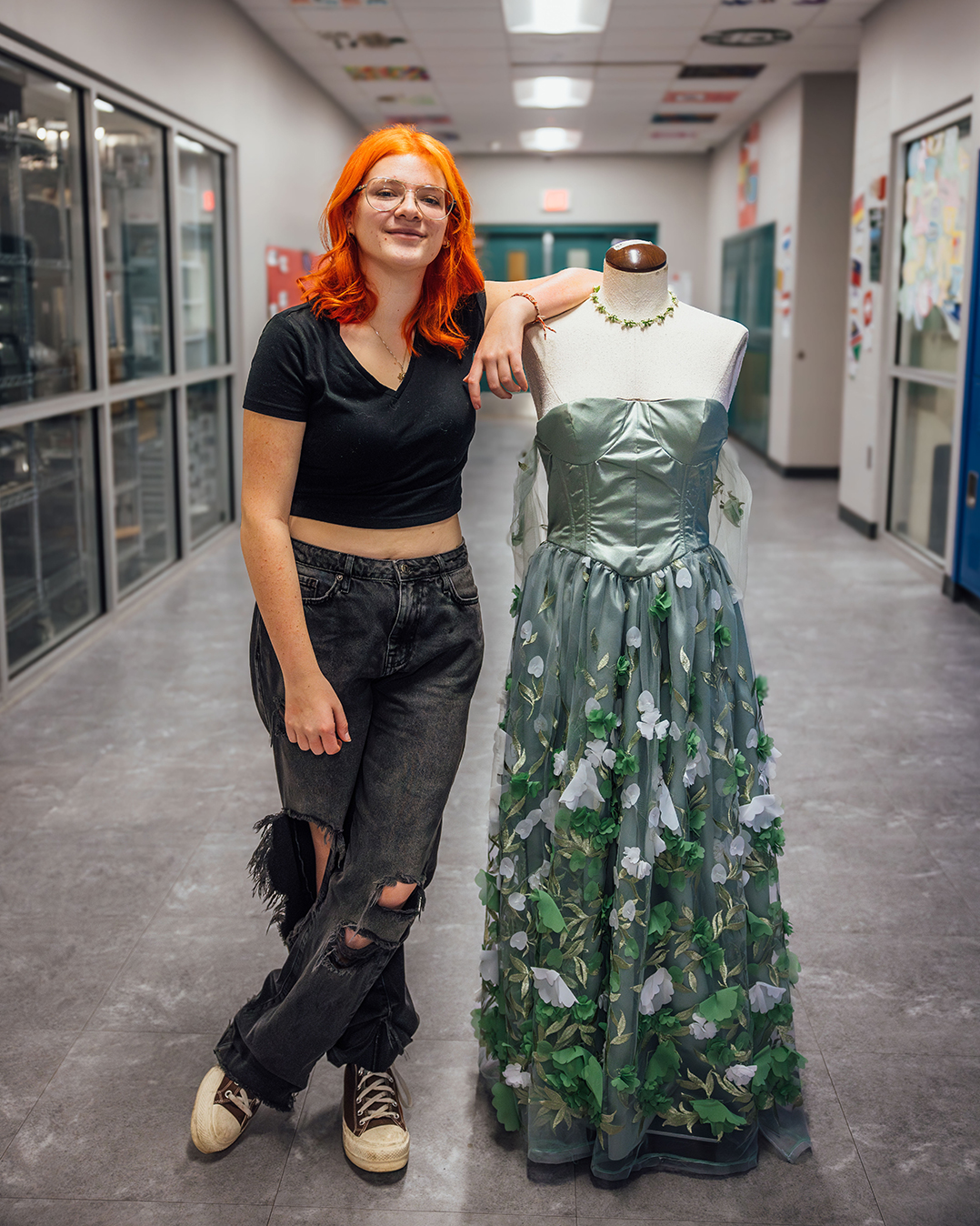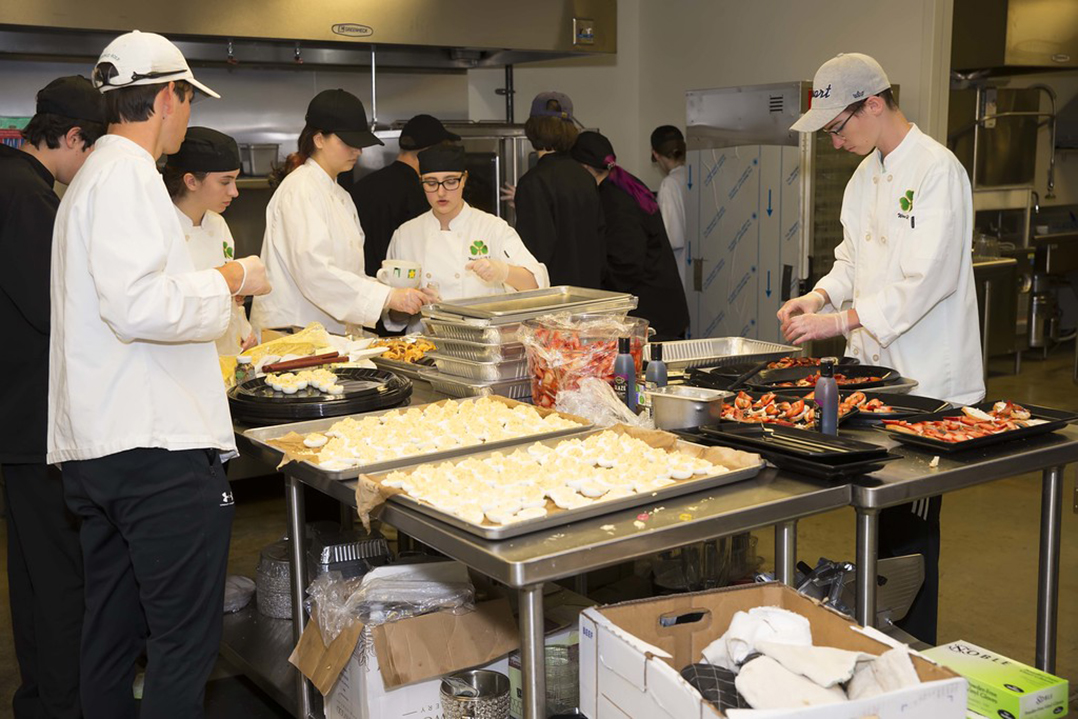A well-rounded education at Westfield High School is about more than reading, writing and arithmetic. The school’s Family and Consumer Sciences program has seen a boom in development and participation since it was first reimagined a decade ago.
Nikki Heflin is a culinary educator in the department. While Heflin and her partner Bryan Ferreire are well known around Westfield as the leaders of the culinary arts program and sponsors of Foodies Rock — a full-service catering organization made up of high school students — Heflin said there’s more to family and consumer sciences than what’s cooking in the kitchen.
“What brings me such great pride in having a true, comprehensive family and consumer sciences program at Westfield High School is that we are able to provide a lot of experiential education here for our students that provides them with several different career pathways,” Heflin said. “In the courses they are really able to explore what they want to do post-graduation.”
The department has five educators and multiple classes. The courses, taught by Heflin, Ferreire, Katie Duda, Julie McComb and Renee Kohlmann, include culinary arts, early childhood education, interpersonal relationships, adult roles, tourism and visual arts and designs.

Freshman Emmy Watson participates in fashion construction with FCCLA, the family and consumer sciences national technical organization.
“It really inspired me to do something more creative,” Watson, 15, said of family and consumer sciences. “I was able to do fashion construction this year, where you design and make your own garment, then you present a marketing plan and how you made it as well as a budget, pricing, and future plans for your design career.”
Watson designed a formal gown called “Someone New” for the FCCLA competition on March 1, where she qualified as an alternate for Nationals, held June 29 in Seattle.
“I love that it’s such a practical product at the end,” Watson said. “You have an end product that can be used not just by yourself, but it can be appreciated by almost everyone.”
Alyssa Pazdernik, 17, is a junior who spent one trimester this year in early childhood education, spending time at the early learning center three times a week for hands-on experience with children in preschool and younger.
“I’ve always had the interest in becoming a teacher, but I didn’t know if it was something that I really wanted to pursue, so it allowed me that time and opportunity to see if this is something I want to pursue in college,” Pazdernik said.
Sofia Arocha, 17, a WHS senior, said family and consumer sciences introduced her to interior design.
“It was a class that really interested me because I think I am going to go into (design),” Arocha said. “You learn about the principles of how everything in a room should feel together, how things should be unified and nothing should feel odd. There are a lot of things that go into that, it’s all about balance, lines, shapes. We don’t even think about it but rooms are thought out to be not only pretty but also useful. That’s something you really learn in the class.”
Family and consumer science courses teach students not only practical know-how, but career skills.
“Hospitality careers play a pivotal role in the growth of Indianapolis and central Indiana, contributing significantly to the local economy by attracting tourists, creating employment opportunities, and fostering overall development,” Ferreira said, noting that Indianapolis is front and center for hospitality needs this year, with events such as the NBA All Star Weekend, the eclipse, U.S. Olympic swim trials and three nights of Taylor Swift.
“Teaching students about these careers and having guest speakers from the local industry help to create awareness and build the next generation of hospitality leaders from our local community,” Ferreira said.
Enrollments for family and consumer sciences courses for next year are already at 1,100 students.
“I’m very proud of our home economics roots. Where we used to be preparing students just to take care of the home, now we’re preparing students to be life ready,” Heflin said. “It’s not just about taking a course and getting through the day. Family and consumer science is about preparing students to be successful in their everyday lives, their communities, their families and their careers. That’s what it meant to me about building this program and why I’m so proud to be an educator in the family and consumer sciences field.”





